![Interview with the Vampire夜访吸血鬼 英文原版 [平装]](https://pic.windowsfront.com/19015478/55361460Nd1e08c41.jpg)

具体描述
编辑推荐
In the now-classic novel Interview with the Vampire Anne Rice refreshed the archetypal vampire myth for a late-20th-century audience. The story is ostensibly a simple one: having suffered a tremendous personal loss an 18th-century Louisiana plantation owner named Louis Pointe du Lac descends into an alcoholic stupor. At his emotional nadir he is confronted by Lestat a charismatic and powerful vampire who chooses Louis to be his fledgling. The two prey on innocents give their "dark gift" to a young girl and seek out others of their kind (notably the ancient vampire Armand) in Paris. But a summary of this story bypasses the central attractions of the novel. First and foremost the method Rice chose to tell her tale——with Louis' first-person confession to a skeptical boy——transformed the vampire from a hideous predator into a highly sympathetic seductive and all-too-human figure. Second by entering the experience of an immortal character one raised with a deep Catholic faith Rice was able to explore profound philosophical concerns——the nature of evil the reality of death and the limits of human perception——in ways not possible from the perspective of a more finite narrator.内容简介
Here are the confessions of a vampire. Hypnotic, shocking, and chillingly erotic, this is a novel of mesmerizing beauty and astonishing force–a story of danger and flight, of love and loss, of suspense and resolution, and of the extraordinary power of the senses. It is a novel only Anne Rice could write.作者简介
Anne Rice is the author of twenty-seven books. She lives in Rancho Mirage, California.精彩书评
While Rice has continued to investigate history, faith, and philosophy in subsequent Vampire novels (including The Vampire Lestat, The Queen of the Damned, The Tale of the Body Thief, Memnoch the Devil, and The Vampire Armand), Interview remains a treasured masterpiece. It is that rare work that blends a childlike fascination for the supernatural with a profound vision of the human condition.——Patrick O'Kelley
Rice turned the vampire genre on its ear with this first novel (LJ 5/1/76), which evolved into one of the most popular series in recent history. Though the quality of the books has declined, this nonetheless is a marvelous, innovative, and literate tale of the longing for love and the search for redemption. This 20th-anniversary edition offers a trade-size paperback for a good price.
——Library Journal
"A magnificent, compulsively readable thriller...Rice begins where Bram Stoker and the Hollywood versions leave off and penetrates directly to the true fascination of the myth–the education of the vampire."
——Chicago Tribune
"Unrelentingly erotic...sometimes beautiful, and always unforgettable."
——Washington Post
"If you surrender and go with her...you have surrendered to enchantment, as in a voluptuous dream."
——Boston Globe
"A chilling, thought-provoking tale, beautifully frightening, sensuous, and utterly unnerving."
——Hartford Courant
精彩书摘
"I see--" said the vampire thoughtfully, and slowly he walked across the room towards the window. For a long time he stood there against the dim light from Divisadero Street and the passing beams of traffic. The boy could see the furnishings of the room more clearly now, the round oak table, the chairs. A wash basin hung on one wall with a mirror. He set his briefcase on the table and waited."But how much tape do you have with you?" asked the vampire, turning now so the boy could see his profile. "Enough for the story of a life?"
"Sure, if it's a good life. Sometimes I interview as many as three or four good people a night if I'm lucky. But it has to be a good story. That's only fair, isn't it?"
"Admirably fair," the vampire answered. "I would like to tell you the story of my life, then. I would like to do that very much."
"Great," said the boy. And quickly he removed a small tape recorder from his brief case, making a check of the cassette and batteries. "I'm really anxious to hear why you believe this, why you--"
"No," said the vampire abruptly. "We can't begin that way. Is your equipment ready?"
"Yes," said the boy.
"Then sit down. I'm going to turn on the overhead light."
"But I thought vampires didn't like the light," said the boy. "If you think the dark adds atmosphere--" But then he stopped. The vampire was watching him with his back to the window. The boy could make out nothing of his face now, and something about the still figure there distracted him. He started to say something again but he said nothing. And then he sighed with relief when the vampire moved towards the table and reached for the overhead cord.
At once the room was flooded with a harsh yellow light. And the boy, staring up at the vampire, could not repress a gasp. His fingers danced backwards on the table to grasp the edge. "Dear God!" he whispered, and then he gazed, speechless, at the vampire.
The vampire was utterly white and smooth, as if he were sculpted from bleached bone, and his face was as seemingly inanimate as a statue, except for two brilliant green eyes that looked down at the boy intently like flames in a skull. But then the vampire smiled almost wistfully, and the smooth white substance of his face moved with the infinitely flexible but minimal lines of a cartoon. "Do you see?" he asked softly?
The boy shuddered, lifting his hand as if to shield himself from a powerful light. His eyes moved slowly over the finely tailored black coat he'd only glimpsed in the bar, the long folds of the cape, the black silk tie knotted at the throat, and the gleam of the white collar that was as white as the vampire's flesh. He stared at the vampire's full black hair, the waves that were combed back over the tips of the ears, the curls that barely touched the edge of the white collar.
"Now, do you still want the interview?" the vampire asked.
The boy's mouth was open before the sound came out. He was nodding. Then he said, "Yes."
The vampire sat down slowly opposite him and, leaning forward, said gently, confidentially, "Don't be afraid. Just start the tape."
And then he reached out over the length of the table. The boy recoiled, sweat running down the sides of his face. The vampire clamped a hand on the boy's shoulder and said, "Believe me, I won't hurt you. I want this opportunity. It's more important to me than you can realize now. I want you to begin." And he withdrew his hand and sat collected, waiting.
It took a moment for the boy to wipe his forehead and his lips with a handkerchief, to stammer that the microphone was in the machine, to press the button, to say that the machine was on.
"You weren't always a vampire, were you?" he began.
"No," answered the vampire. "I was a twenty-five-year-old man when I became a vampire, and the year was seventeen ninety-one."
The boy was startled by the preciseness of the date and he repeated it before he asked, "How did it come about?"
"There's a simple answer to that. I don't believe I want to give simple answers," said the vampire. "I think I want to tell the real story--."
"Yes," the boy said quickly. He was folding his handkerchief over and over and wiping his lips now with it again.
"There was a tragedy--" the vampire started. "It was my younger brother--. He died." And then he stopped, so that the boy could clear his throat and wipe at his face again before stuffing the handkerchief almost impatiently into his pocket.
"It's not painful, is it?" he asked timidly.
"Does it seem so?" asked the vampire. "No." He shook his head. "It's simply that I've only told this story to one other person. And that was so long ago. No, it's not painful--.
"We were living in Louisiana then. We'd received a land grant and settled two indigo plantations on the Mississippi very near New Orleans--."
"Ah, that's the accent--" the boy said softly.
For a moment the vampire stared blankly. "I have an accent?" He began to laugh.
And the boy, flustered, answered quickly. "I noticed it in the bar when I asked you what you did for a living. It's just a slight sharpness to the consonants, that's all. I never guessed it was French."
"It's all right," the vampire assured him. "I'm not as shocked as I pretend to be. It's only that I forget it from time to time. But let me go on--."
"Please--" said the boy.
"I was talking about the plantations. They had a great deal to do with it, really, my becoming a vampire. But I'll come to that. Our life there was both luxurious and primitive. And we ourselves found it extremely attractive. You see, we lived far better there than we could have ever lived in France. Perhaps the sheer wilderness of Louisiana only made it seem so, but seeming so, it was. I remember the imported furniture that cluttered the house." The vampire smiled. "And the harpsichord; that was lovely. My sister used to play it. On summer evenings, she would sit at the keys with her back to the open French windows. And I can still remember that thin, rapid music and the vision of the swamp rising beyond her, the moss-hung cypresses floating against the sky. And there were the sounds of the swamp, a chorus of creatures, the cry of the birds. I think we loved it. It made the rosewood furniture all the more precious, the music more delicate and desirable. Even when the wisteria tore the shutters off the attic windows and worked its tendrils right into the whitewashed brick in less that a year-- Yes, we loved it. All except my brother. I don't think I ever heard him complain of anything, but I knew how he felt. My father was dead then, and I was head of the family and I had to defend him constantly from my mother and sister. They wanted to take him visiting, and to New Orleans for parties, but he hated these things. I think he stopped going altogether before he was twelve. Prayer was what mattered to him, prayer and his leatherbound lives of the saints.
"Finally, I built him an oratory removed from the house, and he began to spend most of every day there and often the early evening. It was ironic, really. He was so different from us, so different from everyone, and I was so regular! There was nothing extraordinary about me whatsoever." The vampire smiled.
"Sometimes in the evening I would go out to him and find him in the garden near the oratory, sitting absolutely composed on a stone bench there, and I'd tell him my troubles, the difficulties I had with the slaves, how I distrusted the overseer or the weather or my brokers-- all the problems that made up the length and breadth of my existence. And he would always listen, making only a few comments, always sympathetic, so that when I left him I had the distinct impression he had solved everything for me. I didn't think I could deny him anything, and I vowed that no matter how it would break my heart to lose him, he could enter the priesthood when the time came. Of course, I was wrong." The vampire stopped.
For a moment the boy only gazed at him and then he started as if awakened from a deep thought, and he floundered, as if he could not find the right words. "Ah-- he didn't want to be a priest?" the boy asked. The vampire studied him as if trying to discern to meaning of his expression. Then he said:
"I meant that I was wrong about myself, about my not denying him anything." His eyes moved over the far wall and fixed on the panes of the window. "He began to see visions."
"Real visions?" the boy asked, but again there was hesitation, as if he were thinking of something else.
"I don't think so," the vampire answered. "It happened when he was fifteen. He was very handsome then. He had the smoothest skin and the largest blue eyes. He was robust, not thin as I am now and was then-- but his eyes-- it was as if when I looked into his eyes I was standing alone on the edge of the world-- on a windswept ocean beach. There was nothing but the soft roar of the waves.
Well," he said, his eyes still fixed on the window panes, "he began to see visions. He only hinted at this at first, and he stopped taking his meals altogether. He lived in the oratory. At any hour of day or night, I could find him on the bare flagstones kneeling before the altar. And the oratory itself was neglected. He stopped tending the candle or changing the altar clothes or even sweeping out the leaves. One night I became really alarmed when I stood in the rose arbor watching him for one solid hour, during which he never moved from his knees and never once lowered his arms, which he held outstretched i...
用户评价
这本《夜访吸血鬼》的平装版本,给我带来的感觉,简直就像是打开了一扇通往古老、阴郁而又极具魅力的世界的大门。安妮·赖斯并没有选择直接抛出惊悚的情节来抓住读者,而是用一种极其舒缓、却又暗流涌动的笔触,慢慢地揭开了这个吸血鬼的世界的面纱。她对环境的描写,尤其是那些欧洲古老城市的夜景,那种哥特式的、带着历史沉淀的颓败感,被描绘得淋漓尽致。我感觉我能闻到空气中弥漫的湿气,听到远处传来的马蹄声,甚至能感受到那些古老建筑墙壁上传来的冰冷触感。故事的叙述者,那个吸血鬼,他并不是一个高高在上、俯视众生的神祇,反而是一个充满了矛盾和痛苦的存在。他对自己永生的生命充满了迷茫,对人类的短暂生命既感到蔑视又流露出一种奇异的眷恋。他所经历的一切,那种跨越世纪的情感纠葛,以及他对“成为吸血鬼”的挣扎,都让我陷入了深深的沉思。这本书不像那些简单追求感官刺激的作品,它更像是一首长诗,一幅缓缓展开的画卷,让你在细细品味中,感受到那种深刻的、关于存在、关于孤独、关于永恒的咏叹调。
评分初次捧起这本《夜访吸血鬼》的平装版,我并没有预设任何的期待,但随后的阅读过程,却彻底颠覆了我对吸血鬼文学的认知。安妮·赖斯用一种极其大胆、却又充满艺术性的方式,将我们带入了一个非现实的领域,但她笔下的角色,却有着比许多现实人物更复杂、更深刻的内心世界。她没有选择将吸血鬼描绘成简单的邪恶符号,而是深入探索了他们的情感、他们的欲望、以及他们对于“生命”本身的理解。特别是故事的叙述者,他的回忆录,不仅仅是关于他成为吸血鬼的过程,更是他漫长生命中,对存在、对道德、对孤独的深刻反思。我惊叹于她能够将如此黑暗的主题,用一种如此优美、如此引人入胜的笔触来展现。那些关于复仇、关于爱、关于永恒的纠葛,都随着故事的展开,层层剥落,让我沉醉其中。这本书让我看到了吸血鬼故事的另一种可能性,它不仅仅是关于恐怖,更是关于人性,关于那些隐藏在黑暗中的、我们无法忽视的哲学命题。
评分哇,这本《夜访吸血鬼》的平装版,简直是让我重新认识了“吸血鬼”这个概念。我之前看过的那些描写,总觉得是些刻板印象的集合,不是披着华丽外衣的恶棍,就是只会躲在阴影里低语的怪物。但安妮·赖斯笔下的吸血鬼,完全颠覆了我的想象。它不像那些快餐式的恐怖故事,只是为了吓人而吓人。相反,这是一种深刻的、带着哲学思辨的剖析。我一边读,一边忍不住思考,如果真的存在这样一种生物,他们的永生是如何塑造他们的?他们会在漫长的生命中积累怎样的智慧,又会承受怎样的孤独?书中的路易,他不再是那个我们熟悉的、面目模糊的恶魔,他有着人类的情感,有着道德的挣扎,有着对自身存在意义的追问。他的痛苦,他的悔恨,甚至他偶尔流露出的温柔,都让我感到一种前所未有的共鸣。这种对非人生命的细腻刻画,真的让我拍案叫绝。它不是在描绘一个简单的善恶二元对立的故事,而是将我们置于一个模糊的地带,让我们去审视欲望、道德、以及生命本身的重量。这本书的文字有一种魔力,能将你一点点拉进那个暗影重重的世界,让你感同身受,甚至让你开始怀疑,我们对“人性”的定义是否太过狭隘。
评分这本《夜访吸血鬼》的平装版本,给我的阅读体验,与其说是“读”更像是一种“沉浸”。安妮·赖斯创造了一个如此真实、如此有血有肉的吸血鬼世界,让我仿佛置身其中,与那些长生不老的生物一同呼吸、一同感受。她对人物心理的刻画,简直是入木三分。那个讲述者,他对自己的经历充满了回忆,也充满了痛苦和迷茫。他既享受着吸血鬼的强大力量,又为自己失去了作为人类的一切而感到深深的失落。这种矛盾的心理,让她笔下的吸血鬼不再是冷血的怪物,而是活生生、有着复杂情感的个体。我被他对于“永生”的看法深深吸引,他所经历的漫长岁月,积累的知识和阅历,却无法填补他内心的空虚。这本书让我思考,如果拥有了永恒的生命,我们是否会更加珍惜短暂的存在?我们又会如何面对无尽的孤独?安妮·赖斯用一种近乎诗意的语言,将这些深邃的问题呈现在我们面前,让我久久不能平静。这不仅仅是一个故事,更是一次关于生命意义的探索。
评分拿到这本《夜访吸血鬼》的平装版,我本来以为会是一场简单的吸血鬼冒险,没想到却是一场关于人性、道德和存在的深刻对话。安妮·赖斯笔下的吸血鬼,不是那种扁平化的符号,而是有着复杂内心世界的个体。她没有回避吸血鬼的黑暗面,但更侧重于展现他们作为“非人”的视角,以及这种视角如何影响他们对世界的认知。故事通过一位吸血鬼的回忆展开,他讲述了自己如何被转化,以及在漫长的生命中,他所经历的孤独、迷失和对“成为人类”的渴望。我特别喜欢她对吸血鬼社会内部规则和生存方式的细致描绘,那种隐秘而又自成一体的体系,充满了神秘感。更让我着迷的是,她提出的“吸血鬼”其实可以被看作是一种象征,一种对生命、死亡、以及人类自身欲望的隐喻。读这本书,我不仅是在阅读一个关于吸血鬼的故事,更是在审视我们自己,审视我们所处的社会,以及我们对“生命”的定义。这种深度和广度,是许多同类作品难以企及的,也正是它让我爱不释手的原因。
评分,...--.
评分.,,..!,,,.
评分宇智波鼬(11张)一个人在家保护还是婴儿的弟弟佐助
评分书的封面不长这样,不过我觉得实物的封面好看些。【刚拿到没多久还在读~
评分手感不错,但纸张一般,看着不舒服。
评分真的是很好的一本书! 书是正版的,之前有过担心滴。内容还行吧,尽管我没觉得有多充实。冲着是名人写的,书的质量还行就不挑剔了。卖家发货挺快的,第二天就收到了。书还是不错的,精装外壳,发货速度真心的快,评价晚了,书不错,应该再早点看的。推荐看,只是粗浅认识了一下,已经感觉到自己逻辑思维更加清晰。好书,受益匪浅,如果不好好研究一下此书,绝对是人生一大遗憾。星期天在家没事,突然想去附近的超市逛逛。信步走进去看看,来到服装柜台,看见一款上衣,颜色面料都不错,于是心动了,想买,由于这是自选商场,我便去取下来试穿,在镜子前刚穿上,一女服务员走了过来,面无表情的说道:知道穿多大号吗?就自己拿着试开了。要买就去收银台交钱,也不看价钱!”本来打算买的,一看这个服务员,只好无奈的摇摇头将衣服放回原位,悻悻的走开了。心想我还是到网上来算了,于是回家上网到京东挑选衣服了,看见了这本书就买了。好了,我现在来说说这本书的观感吧,一个人重要的是找到自己的腔调,不论说话还是写字。腔调一旦确立,就好比打架有了块趁手的板砖,怎么使怎么顺手,怎么拍怎么有劲,顺带着身体姿态也挥洒自如,打架简直成了舞蹈,兼有了美感和韵味。要论到写字,腔调甚至先于主题,它是一个人特有的形式,或者工具;不这么说,不这么写,就会别扭;工欲善其事,必先利其器,腔调有时候就是“器”,有时候又是“事”,对一篇文章或者一本书来说,器就是事,事就是器。这本书,的确是用他特有的腔调表达了对“腔调”本身的赞美。|现在,京东域名正式更换为JDCOM。其中的“JD”是京东汉语拼音(JING DON|G)首字母组合。从此,您不用再特意记忆京东的域名,也无需先搜索再点击,只要在浏览器输入JD.COM,即可方便快捷地访问京东,实现轻松购物。名为“Joy”的京东吉祥物我很喜欢,TA承载着京东对我们的承诺和努力。狗以对主人忠诚而著称,同时也拥有正直的品行,和快捷的奔跑速度。太喜爱京东了。|给大家介绍本好书《我们如何走到这一步》自序:这些年,你过得怎么样我曾经想过,如果能时光穿梭,遇见从前的自己,是否可以和她做朋友。但我审慎地不敢发表意见。因为从前的自己是多么无知,这件事是很清楚的。就算怀着再复杂的爱去回望,没准儿也能气个半死,看着她在那条傻乎乎的路上跌跌撞撞前行,忍不住开口相劝,搞不好还会被她厌弃。你看天下的事情往往都是一厢情愿。当然我也忍住了各种吐槽,人总是要给自己留余地的,因为还有一种可能是,未来的自己回望现在,看见的还是一个人。好在现在不敢轻易放狠话了,所以总算显得比年轻的时候还有一分从容。但不管什么时候的你,都是你。这时间轴上反复上演的就是打怪兽的过程。过去困扰你的事情,现在已可轻易解决,但往往还有更大的boss在前面等你。“人怎么可能没有烦恼呢”——无论是你初中毕业的那个午后,或者多年后功成名就那一天,总有不同忧伤涌上心头:有些烦恼是钱可以解决的,而更伤悲的是有些烦恼是钱解决不了的。我们曾经在年少时想象的“等到什么什么的时候就一切都好起来了”根本就是个谬论。所以,只能咬着牙继续朝前走吧。
评分闪迪(SanDisk)至尊极速CompactFlash存储卡 64GB 800X 读速120 商品名称:川宇C289 商品编号:2137972 品牌: 川宇(kawau) 商品毛重:10.00g 商品产地:中国大陆 类型:TF 读卡器 价格说明: 京东价:京东价为商品的销售价,是您最终决定是否购买商品的依据。 划线价:商品展示的划横线价格为参考价,该价格可能是品牌专柜标价、商品吊牌价或由品牌供应商提供的正品零售价(如厂商指导价、建议零售价等)或该商品在京东平台上曾经展示过的销售价;由于地区、时间的差异性和市场行情波动,品牌专柜标价、商品吊牌价等可能会与您购物时展示的不一致,该价格仅供您参考。 折扣:如无特殊说明,折扣指销售商在原价、或划线价(如品牌专柜标价、商品吊牌价、厂商指导价、厂商建议零售价)等某一价格基础上计算出的优惠比例或优惠金额;如有疑问,您可在购买前联系销售商进行咨询。 异常问题:商品促销信息以商品详情页“促销”栏中的信息为准;商品的具体售价以订单结算页价格为准;如您发现活动商品售价或促销信息有异常,建议购买前先联系销售商咨询。
评分,,,.
评分挺好的挺好的得到的呃呃呃呃呃呃呃呃
相关图书
本站所有内容均为互联网搜索引擎提供的公开搜索信息,本站不存储任何数据与内容,任何内容与数据均与本站无关,如有需要请联系相关搜索引擎包括但不限于百度,google,bing,sogou 等
© 2026 book.coffeedeals.club All Rights Reserved. 静流书站 版权所有

![Before Sunrise & Before Sunset: Two Screenplays 英文原版 [平装] pdf epub mobi 电子书 下载](https://pic.windowsfront.com/19352551/rBEhV1JbkfgIAAAAAAB57JmPiT8AAEJ0ALaftgAAHoE428.jpg)
![Fox And His Friends (Puffin Young Readers, L3) 狐狸和它的朋友们 英文原版 [平装] pdf epub mobi 电子书 下载](https://pic.windowsfront.com/19463635/rBEhVVL4Pe8IAAAAAA7Lfu6I1yMAAIeKwEKXQIADsuW314.jpg)
![Encyclopedia Mythologica: Gods and Heroes Pop-Up [精装] [8-12岁] pdf epub mobi 电子书 下载](https://pic.windowsfront.com/19544535/55cc0f6fN01be6b24.jpg)
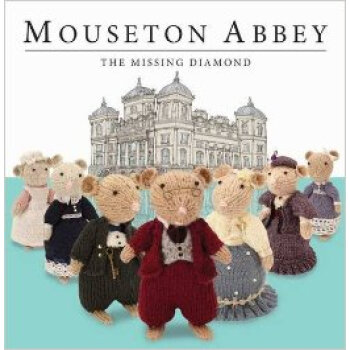
![The Subtle Art of Not Giving a F*ck A Counterin 英文原版 [平装] pdf epub mobi 电子书 下载](https://pic.windowsfront.com/19647691/5af94fa6N272a45dc.jpg)
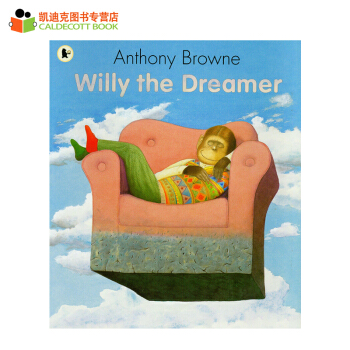
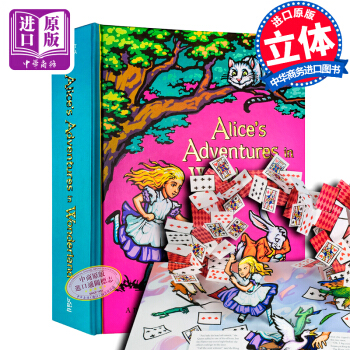
![[现货]Flipped 怦然心动 英文原版 (韩寒推荐电影《怦然心动》同名原著 全英文 pdf epub mobi 电子书 下载](https://pic.windowsfront.com/10003472386/58abfbbcNe4169754.jpg)
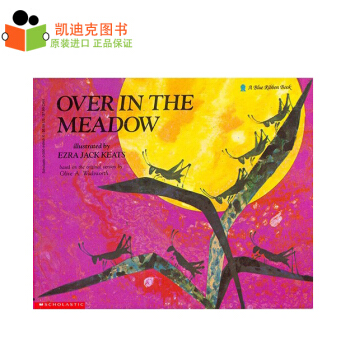
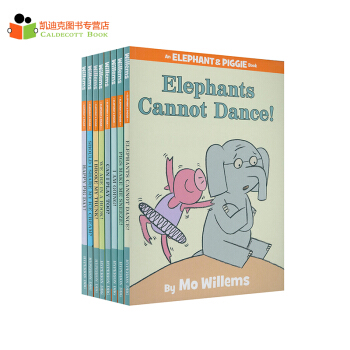
![Show Me the Honey [平装] [5岁及以上] pdf epub mobi 电子书 下载](https://pic.windowsfront.com/19016247/a04863c2-6f84-4304-9bce-4ddfcef95d3e.jpg)
![Good To Great从优秀到卓越 英文原版 [精装] pdf epub mobi 电子书 下载](https://pic.windowsfront.com/19026079/rBEHaVDFjfAIAAAAAADoc2bpxdQAADNOgEwCz0AAOiL987.jpg)
![What the Dog Saw 小狗看世界 [平装] pdf epub mobi 电子书 下载](https://pic.windowsfront.com/19030603/c2fb88c3-7735-4ecd-aa51-11c8902e9428.jpg)
![Coco Chanel可可香奈儿传记 英文原版 [平装] pdf epub mobi 电子书 下载](https://pic.windowsfront.com/19031068/f27e1ebf-2701-4526-a93f-c19331835f1a.jpg)
![20,000 Leagues Under the Sea[海底两万里] 英文原版 [平装] pdf epub mobi 电子书 下载](https://pic.windowsfront.com/19043371/85698b61-aaa7-44a5-823f-db62fdbfb992.jpg)
![National Geographic Readers #2: Saving Animal Babies 英文原版 [平装] [5-8 岁] pdf epub mobi 电子书 下载](https://pic.windowsfront.com/19285160/rBEhWlHnQ3IIAAAAAADR2Ck0acIAABI2wPCVcIAANHw279.jpg)
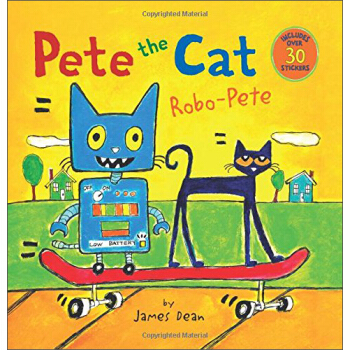

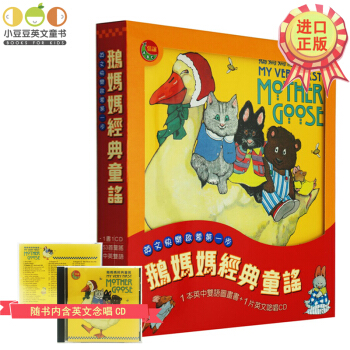
![My Car我的小汽车 [精装] [4-8岁] pdf epub mobi 电子书 下载](https://pic.windowsfront.com/19009027/550be682N28f04188.jpg)